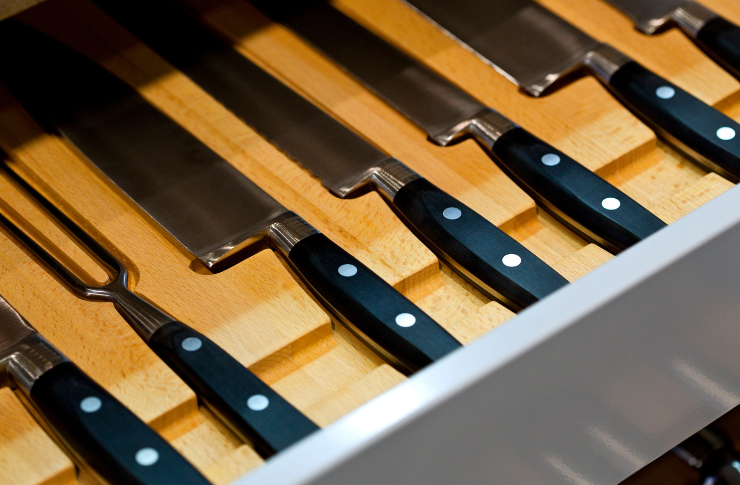While all knives serve the basic function of cutting, the price range can vary dramatically. Here are the key differences between inexpensive and expensive knives:
- Materials: Inexpensive knives are often made from lower-quality materials. The blades may be made from lower-grade steel that can dull quickly, while the handles may be made from cheaper plastic or wood. Expensive knives, on the other hand, are often crafted from high-grade steel that maintains its edge for longer and may have handles made of durable and premium materials like high-quality wood or composites.
- Craftsmanship: Expensive knives are usually a product of superior craftsmanship. They might be hand-forged and sharpened, showing attention to detail and often come from long-standing companies with established reputations for quality. In contrast, inexpensive knives are likely mass-produced, potentially leading to lower quality control.
- Performance: An expensive knife often offers superior performance. It usually remains sharp for a longer time, provides precise cuts, and might feel better balanced in the hand. In contrast, an inexpensive knife might dull quickly, require frequent sharpening, and may not offer the same level of precision.
- Longevity: Thanks to their high-quality materials and craftsmanship, expensive knives usually have a much longer lifespan than their inexpensive counterparts. With proper care, an expensive knife can last for decades, making it an investment.
- Comfort: Expensive knives often have more ergonomic designs. They are created to feel comfortable and balanced in the user’s hand, reducing fatigue during long cooking sessions. Inexpensive knives may not have the same level of ergonomic consideration.
- Warranty: Expensive knives often come with extensive warranties or guarantees, offering to repair or replace if the product doesn’t meet the expected standards. Inexpensive knives usually have limited warranties.
In conclusion, while inexpensive knives can certainly be functional, expensive knives are often worth the investment for those who frequently cook or value the culinary arts. They offer superior materials, craftsmanship, performance, and longevity, making them a preferred choice for professional chefs and cooking enthusiasts alike.
